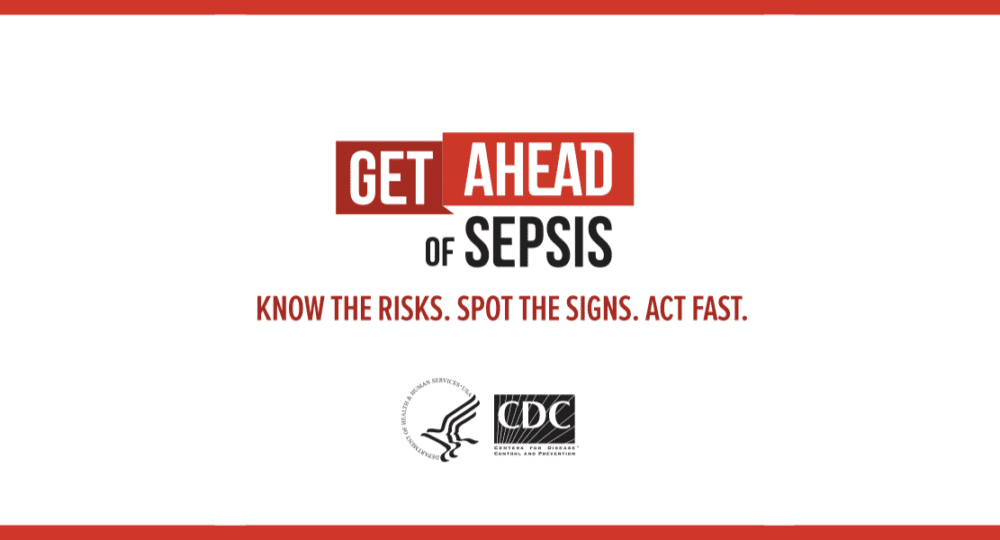Sepsis is a life-threatening complication caused by the body’s response to an infection. Sepsis is one of the leading causes of death in hospitals. It can occur unpredictably and progress rapidly. Because of its severe consequences, September has been designated Sepsis Awareness Month, coinciding with World Sepsis Day on September 13.
When a person gets an infection, the body’s immune system normally releases chemicals to fight it. Sepsis occurs when these chemicals go on to cause widespread inflammation in the body. Left untreated, sepsis can quickly lead to tissue damage, organ failure, and even death.
Anyone can get sepsis, but those most at risk include:
- Infants less than 1-year-old
- Pregnant women
- Adults age 65 and older
- People with weakened immune systems
- People with chronic illnesses (e.g. diabetes, cancer, kidney or lung disease)
Four types of infections are most often associated with sepsis:
- Lung (e.g. pneumonia)
- Urinary tract
- Skin
- Gut (e.g. appendicitis, infectious diarrhea, gallbladder infection)
Treatment of sepsis includes antibiotics as well as therapies directed at maintaining blood flow to organs. These therapies often include intravenous (IV) fluids and supplemental oxygen. Other, more invasive therapies such as mechanical ventilation and kidney dialysis, may be necessary depending on the extent of tissue damage.
Quick recognition and treatment of sepsis is imperative for a better outcome.
Know the signs and symptoms of sepsis and seek immediate medical attention if they are present. Signs and symptoms include:
- Shivering, fever, or feeling very cold
- Extreme pain or discomfort
- Clammy or sweaty skin
- Confusion or disorientation
- Shortness of breath and rapid breathing
- High heart rate
- Low blood pressure
Prevention of sepsis is also key in fighting this potentially fatal medical condition. These are some measures you can take to protect yourself and others from sepsis:
- Get vaccinated and make sure your vaccinations are up to date
- Clean and care for open wounds
- Practice good hygiene, including handwashing, and teach kids to do the same
- Seek medical help when you suspect you have an infection
—
Resources:
https://www.mayoclinic.org/diseases-conditions/sepsis/symptoms-causes/syc-20351214
https://www.cdc.gov/vitalsigns/sepsis/index.html
https://www.cdc.gov/sepsis/index.html
https://www.sepsis.org/sepsis-basics/what-is-sepsis/
https://www.global-sepsis-alliance.org/sepsis
https://www.mayoclinic.org/diseases-conditions/sepsis/symptoms-causes/syc-20351214
https://www.nigms.nih.gov/Education/Pages/factsheet_sepsis.aspx
Graphic courtesy of the CDC





